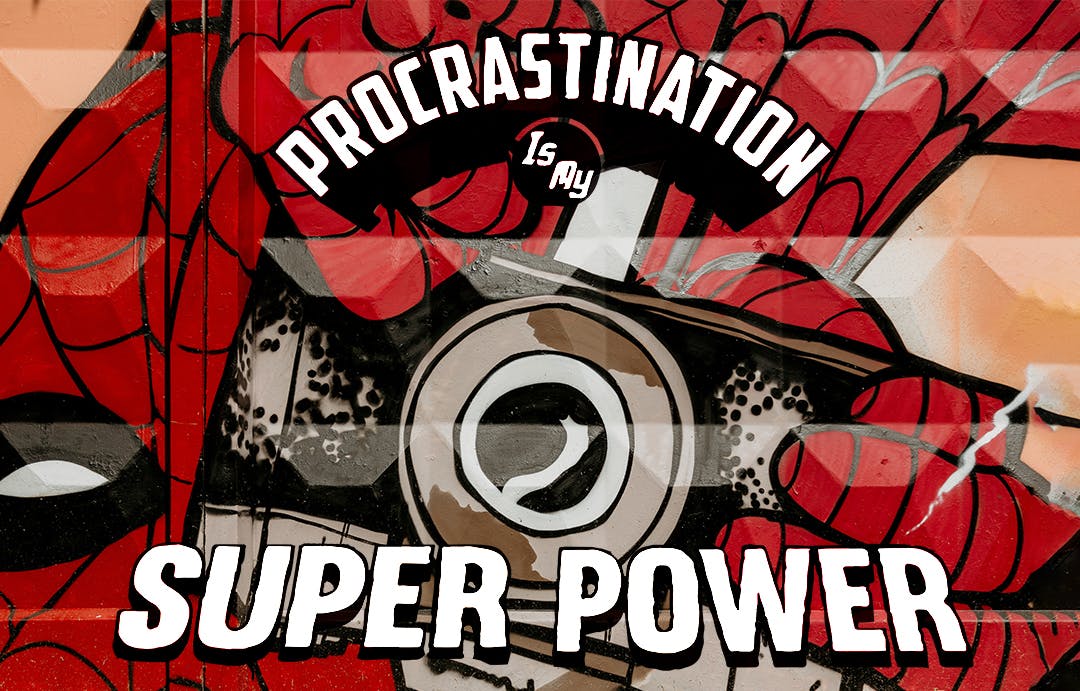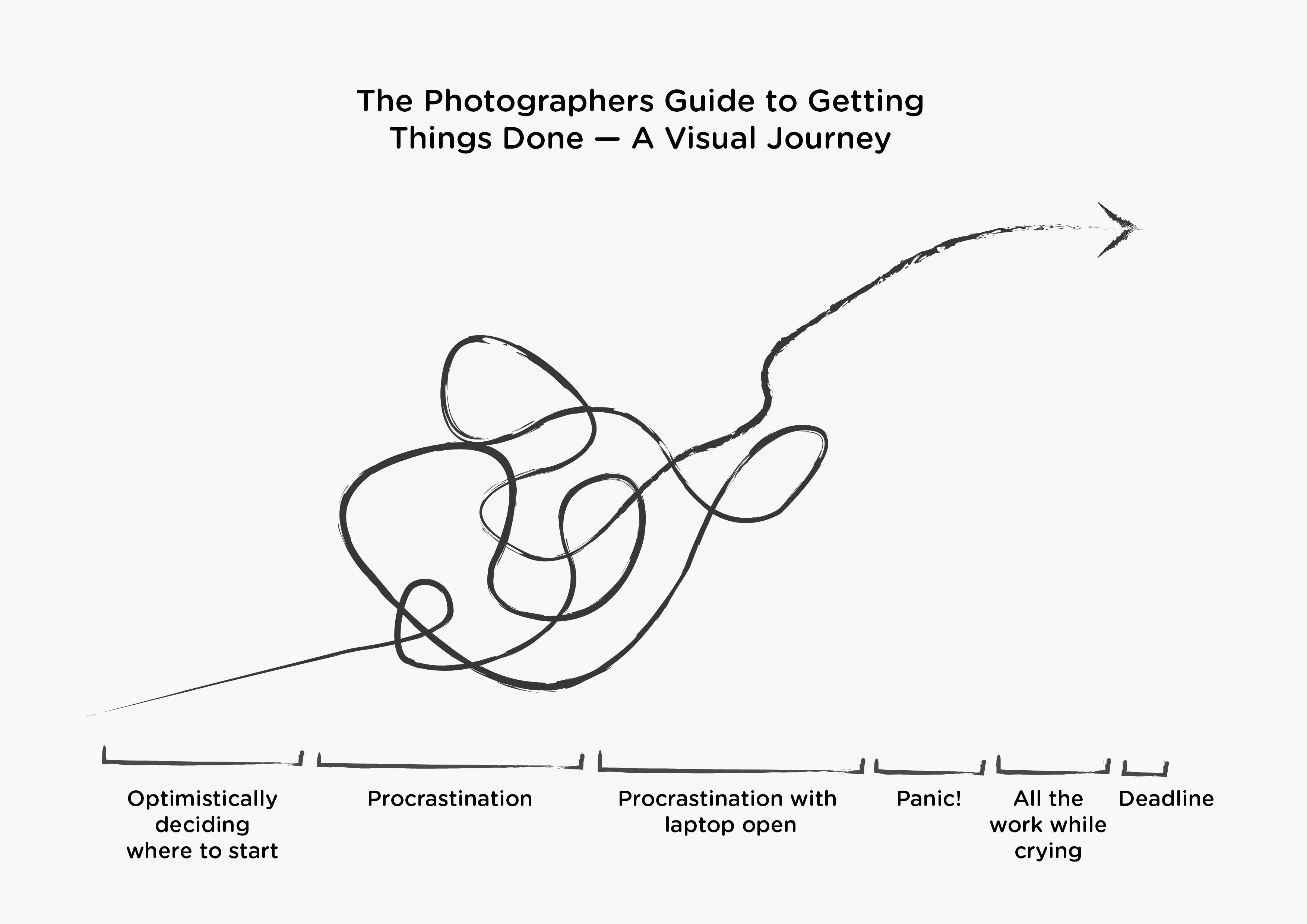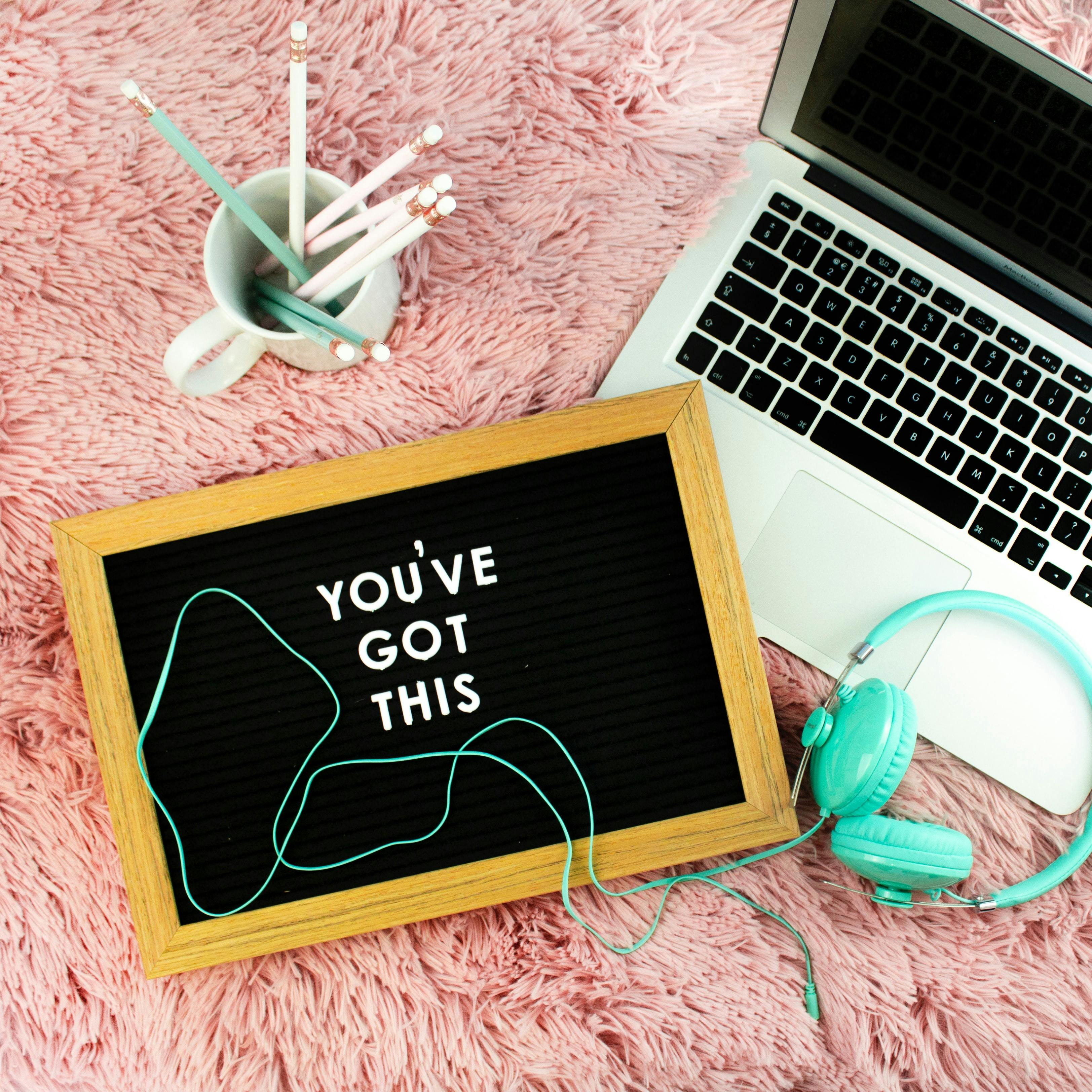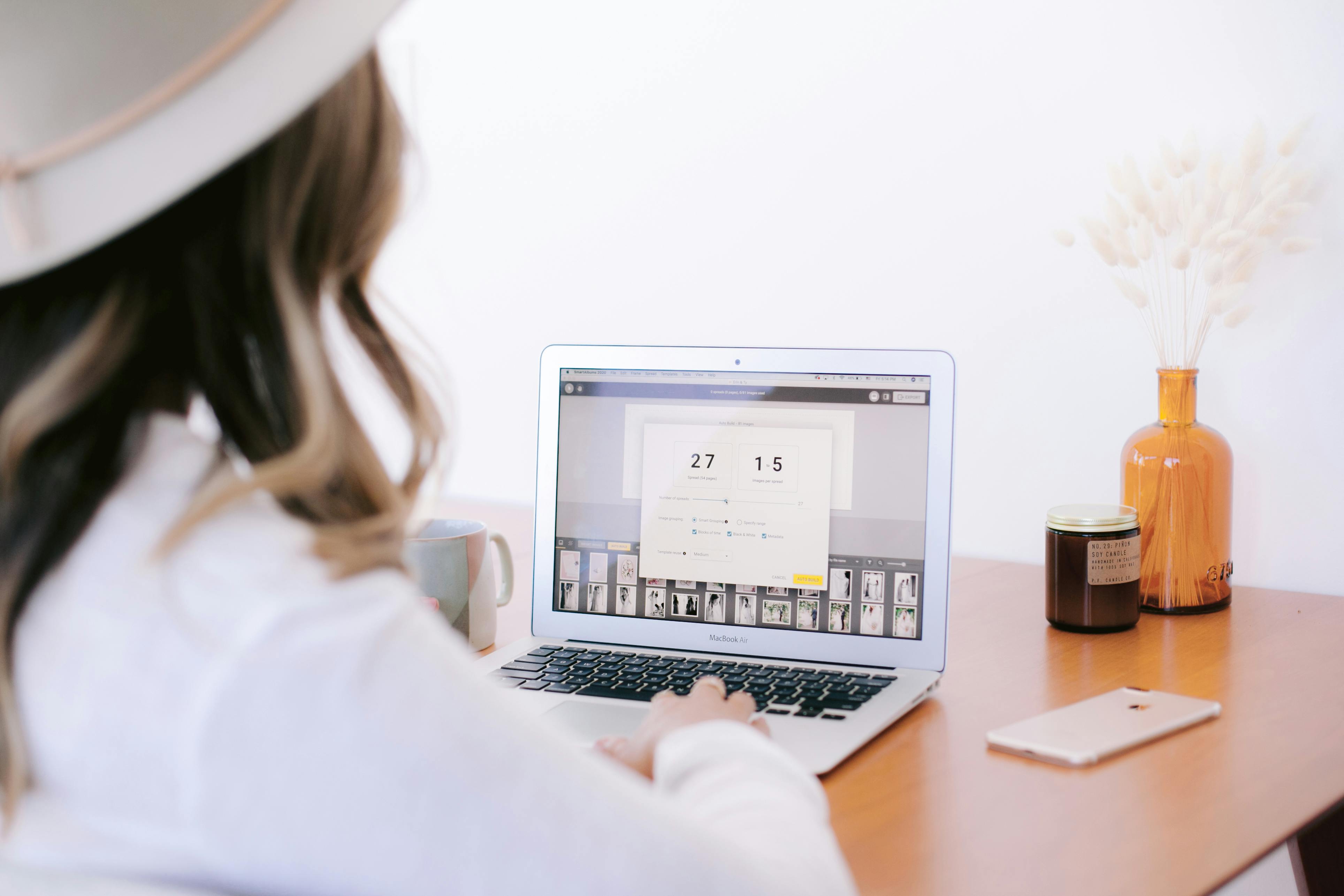Our Tips to Help Photographers Push Past Procrastination
We've all seen the memes, but procrastination in the photography industry is no joke. Maybe it's become so bad because the average photographer only spends 4% of their time taking photos. Or at least that's according to an annual industry survey by UK-based, Your Perfect Wedding Photographer.

While that statistic may not be accurate for everyone, it does hold true for a significant portion of professional photographers. As our industry evolves, we find ourselves splitting our time between editing, admin tasks, client communication, marketing, and many many more ongoing tasks.
Understandably, many of these tasks end up being jobs that we dread tackling. We're photographers, not marketers, or accountants. Yet we need to wear many hats to continue to run successful photography businesses.

Our never-ending to-do lists are a constant source of anxiety. It can be hard to know where to start. The number of jobs on our plate — both personal and professional — is overwhelming. And everything feels like an uphill battle.
It's ok. You are not alone.
We frequently find ourselves caught in a vicious cycle of having too much on our plate, which becomes worse the more we procrastinate.
Some of the main causes of procrastination are lack of motivation, low self-confidence, and fear of failure.
As photographers, the thought of having to tackle a blog post, our accounting for the month, or a social media schedule can be daunting. It's outside of our comfort zone, and it's hardly our idea of an enjoyable day. We're worried we'll do it wrong. We're worried we'll waste our money. And we worry that we're wasting our own time. All of these things mount up, stressing us out. Procrastination is our brain's way of finding a bit of space, and peace among a million pressing tasks.
We've compiled a list of our favorite tips to help photographers beat procrastination and get more done.
1. Forgive past procrastination
Don't berate yourself for past procrastination. Telling yourself off will only make things worse. You get so worked up over the fact that you didn't get all the things done that you needed to, that your brain goes into a state of panic, which triggers more procrastination. It's a vicious cycle. Research shows that by forgiving yourself for previous procrastination, you are more likely to be able to move forwards and take action.
2. Identify why you're avoiding the task
If you find yourself procrastinating about a specific job, it can be helpful to work out why that is. Perhaps you don't know where to start, or you're afraid of a particular outcome.
If you find yourself putting something off, try completing these sentences:
"I'm putting this task off because…"
or
"I'm avoiding starting this job because I'm afraid that…"
Identifying why you're afraid to start can help you realize that the task at hand isn't as difficult or as daunting as you first thought.
3. Cull the To-Do list
How long has your oldest item sat on your To-Do list? Chances are, there are items on your list that you're realistically never going to complete. The easiest way to stop procrastinating about something is to remove it from your list altogether.
Re-examine every item on your list. If you don't absolutely need to do it, then get rid of it. It's one less thing to do, and it's one less thing living rent-free in your head causing more stress and more procrastination.
4. Multi-tasking is a lie
Imagine that you need to fill up two buckets of water. You turn the tap on and start filling one. Once it's filled up a little way, you swap the buckets and start filling the second. Every few minutes, you swap again. The job gets done, but you probably spill a lot of water in the process.
You need to treat your work in the same way. If you regularly switch between different projects throughout the day, you aren't allowing yourself to focus on just one thing. You end up doing several things poorly, it takes you longer, and you probably don't finish everything that you need to. Not only is this an ineffective way to work, but you also end up putting yourself under more stress by asking your brain to jump from one task to another. Start by choosing one job — only one — and commit to completing it immediately.

5. Start immediately
Once you've picked the task that you want to focus on, jump right into it. Don't allow yourself to begin over-thinking it. Commit to spending five minutes on it to progress it even the tiniest bit. Try setting a timer for five minutes to help you zone in and get the project underway.
Once you start working on something, you're more likely to finish it. This is due to a psychological trick called the Zeigarnik effect. Unfinished tasks are more likely to stay in your memory, increasing your urgency to finish them. By starting, you are creating a mental cliffhanger — you need to complete the task, or it will run around and around in your head.
6. Power up with a procrastination power song
The effects of music on the brain are undeniable. It can lift our spirits, improve our mood, calm us down, or give us a boost of energy. If you've ever used an upbeat song to help get through a tough workout, you'll know how effective a good soundtrack can be.
Pick a song that energizes you — that makes you feel as if you can take on the world — and play it whenever you need to tackle something you've been procrastinating about. When it comes to creating new habits, our brains love a trigger. You're also more likely to follow through when you're feeling energized.
7. Reward yourself
Make unappealing tasks fun by implementing a reward system for yourself. Once the job is complete, congratulate yourself with a pre-determined reward. The human brain responds well to reward stimulus, which can help positively reinforce the habits you are trying to build.
_____
If you're searching for ways to make working as a photographer more manageable and enjoyable, try reading our blogs on Finding a Work-Life Balance as a Photographer or Dealing with Difficult Client Requests.


